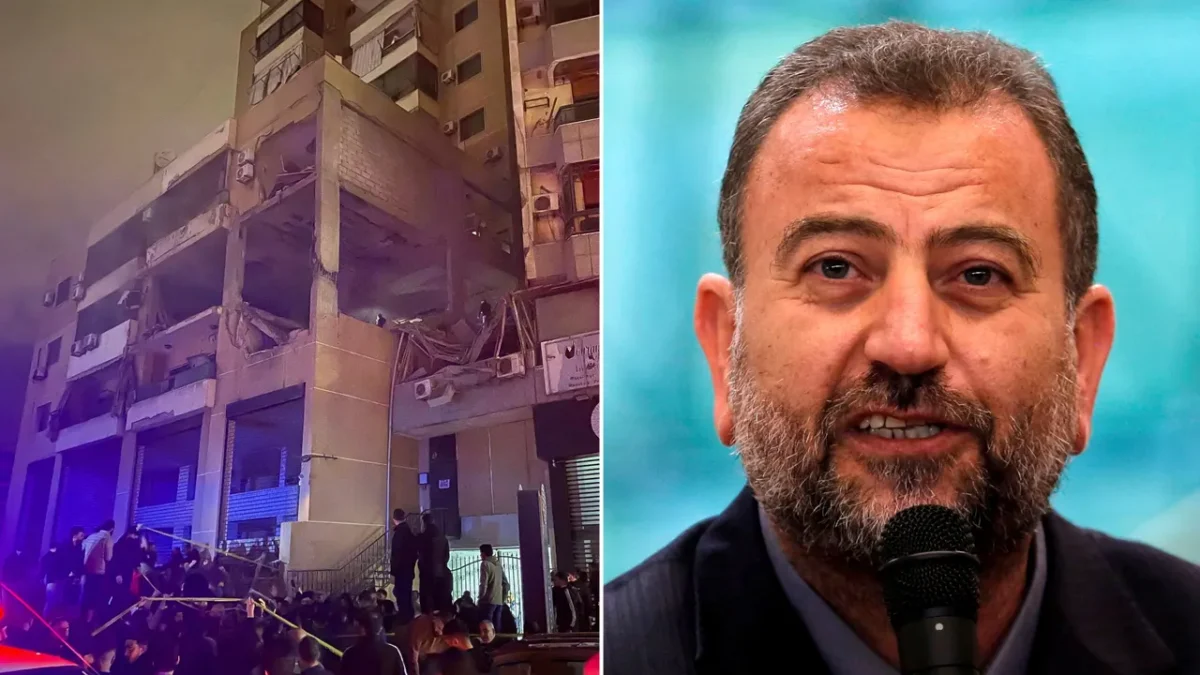On January 2, Saleh al-Arouri, one of Hamas’s most senior officials, was killed in a drone strike in Beirut, the capital of Lebanon. The drone strike is believed to have been instrumented by Israel, though it has not confirmed its role in this strike. The Israeli Army has not commented on this on any of the foreign media channels.
However, this strike threatens a possible dangerous escalation of Israel’s ongoing war against Hamas and its related conflict with the Lebanese militant group Hezbollah. This explosion has occurred at a time when Israeli troops and members of Hezbollah along Lebanon’s southern border have already been involved for more than two months in heavy exchanges of fire. It has been going on since Hamas launched its surprise attack on southern Israel on October 7. On several occasions, Israel’s air force has hit Hezbollah targets deeper in Lebanon.
Details of the drone strike in Beirut, the capital of Lebanon:

Image Credit: Reuters
The area where the attack took place is Dahiyeh, one of Beirut’s sprawling southern suburbs. For a long time, this place has been a stronghold for the Lebanese Hezbollah and a place where Hamas and Palestinian Islamic Jihad have their offices situated.
The drone strike is being said to have caused heavy damage in the area. A witness from the news agency named ‘Reuters’ has said that firefighters and paramedics had gathered around a high-rise building where there was a large hole in what appeared to be the third floor. Images and videos have emerged from the scene of the attack, which show a heavily damaged building and one burning car outside.
In the midst of this, Lebanese media have reported that Arouri, the deputy political leader of Hamas, was killed in a drone strike in Beirut along with six other people. In this group, there were two other Hamas military commanders, Samir Findi and Azzam al-Aqra, and four other members. Hamas’s leader, Ismail Haniyeh, has also confirmed this detail in a televised address.
Who was Saleh al-Arouri?

Image Credit: Wikipedia
Saleh al-Arouri, who was 58 at the time of his death, was one of the most senior members of the Hamas. He was born in a village outside the West Bank city of Ramallah but has been living in Lebanon since 2018 after fleeing from Gaza.
Arouri was one of the founders of Hamas’s military wing, the Qassam Brigades. He was also elected as the deputy chairman of the group’s political bureau back in October 2017. His official role was that of being head of Hamas in the West Bank and being the deputy to Mr. Haniyeh, the chief leader of Hamas.
Regional security officials have, however, said that in recent years, Arouri has spent much of his time in Beirut. There, he used to serve as a sort of ambassador to Hezbollah, the politically powerful Lebanese armed group.
Arouri had been jailed twice in Israel and had to spend more than a dozen years in prison before he was released in 2010. He was a key figure in the group and was seen being close to Yahya Sinwar, Hamas’s leader in Gaza. He was also an important figure in the Hamas’s financial network.
He has also been believed to have directed a number of attacks against Israel. In 2014, Israel accused him of being behind the kidnapping and murder of three Israeli teenagers, which was the cause of that year’s conflict in the Gaza Strip. In September 2015, the US declared him an international terrorist. Recently, he was blamed for firing missiles from southern Lebanon against Israel.
Lebanon and Hamas’s reaction to this drone attack and the possible outcome:

Image Credit: AFP
It is being believed that Arouri’s assassination has likely complicated negotiations between Hamas and Israel over the hostages the militant group Hamas holds in Gaza. It has been reported that Arouri was playing a key role in negotiations for Israeli captives’ release.
Lebanon issued a statement later on Tuesday in which it said that it would submit a complaint to the UN security council over this “blatant strike” on its territory. The Lebanese prime minister, Najib Mikati, has described this strike as a ‘new Israeli crime’ that is intended to spur a new phase of conflict in the Middle East. He is echoing fears of further regional violence, referring to daily attacks in the south of Lebanon.
Mr. Haniyeh, the Hamas leader, has said that the strike has violated Lebanon’s sovereignty. He added that Israel would not succeed in its attempts to break our people’s will to persevere in this war.
However, Israel or the Israeli military have not confirmed their involvement in this drone strike. They have not talked about this with any domestic or international media channel.



